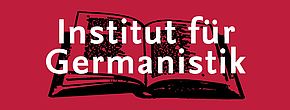
The Foundations of Linguistics
Workshop, 26. - 27. Juni 2015, Haus der Wissenschaft, TU Braunschweig, Germany
Organizers:
Christina Behme
Mount Saint Vincent University
Department of Philosophy
Halifax, NS, B3M 2J6, Canada
Christina.Behme@msvu.ca
Martin Neef
TU Braunschweig
Institut für Germanistik
38106 Braunschweig, Germany
Martin.neef@tu-bs.de
Confirmed Speakers:
Armin Burkhardt, German Department, University of Magdeburg, Germany
Ellen Fricke und Martin Siefkes, German Department, University of Chemnitz, Germany
Andras Kornai, Budapest Institute of Technology and Hungarian Academy of Sciences, Hungary
Terence Langendoen, Department of Linguistics, University of Arizona, and Robust Intelligence Program, National Science Foundation, USA
Robert Levine, Department of Linguistics, Ohio State University, USA
Hans-Heinrich Lieb, Department for Philosophy and Humanities, Free University Berlin, Germany
Ryan Nefdt, Arché Research Centre, University of St Andrews, UK
Andreas Nolda, Department of German Studies, University of Szeged, Hungary
David Pitt, Department of Philosophy, California State University, USA
Geoffrey Pullum, School of Philosophy, Psychology, and Language Sciences, University of Edinburgh, UK
Scott Soames, Director of the School of Philosophy, University of Southern California, USA
Scientific Advisor:
Paul M. Postal
Recent books
Skeptical Linguistic Essays, OUP.
Edge-Based Clausal Syntax, MIT Press.
Over the last 50 years, linguistics has discovered a wealth of intriguing facts about a wide variety of languages and provided new insights about the nature of language. At the same time, the foundations of linguistics remain a neglected and hence poorly understood topic and questions as fundamental to the discipline as "What is the ontological status of sentences" have no generally accepted answers. This 2-day workshop aims to address this unsatisfactory state of affairs. Bringing together linguists and philosophers, we hope to shed light on foundational questions in linguistics. Traditionally, three distinct frameworks have been considered for linguistics: nominalism, conceptualism, and realism (c.f. Katz, 1981). Given that the work by Chomsky (1965), Langendoen & Postal (1984), Katz & Postal (1991), and Katz (1996) has shown that neither nominalism nor conceptualism provides a satisfactory framework, this workshop will focus on realism and provide both arguments for this position and responses to common criticism. Realism conceptualizes language as an abstract object. Adopting this framework provides two advantages: It allows linguists (1) to separate the study of language from the study of linguistic knowledge and (2) to overcome the limitations of nominalism and conceptualism. While such an approach situates research on bio-physiology and psychology outside of linguistics proper, most traditional areas of linguistic research can be subsumed under the realist framework:
"Realist linguistics requires not a new field, but merely a different interpretation of an existing one. What could remain and what would have to be eliminated require specification, but most of what generative linguistics takes to be syntax, semantics, phonology, etc., could be preserved." (Katz & Postal 1991: 531)
Conceiving of language as the primary subject of linguistics will allow the linguist to focus on the structure of language and to provide valuable input to the work of psycholinguists. Psychologists who study the performance and competence systems in humans will profit from having a clearer understanding of the foundational nature of language. This is turn can liberate their work from the limitations of the currently dominating conceptual framework, broaden the evidence base of linguistics, and inform ongoing debates on language acquisition and language evolution.
The programme of the Workshop is here
© Germanistik